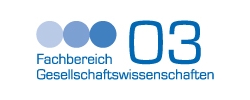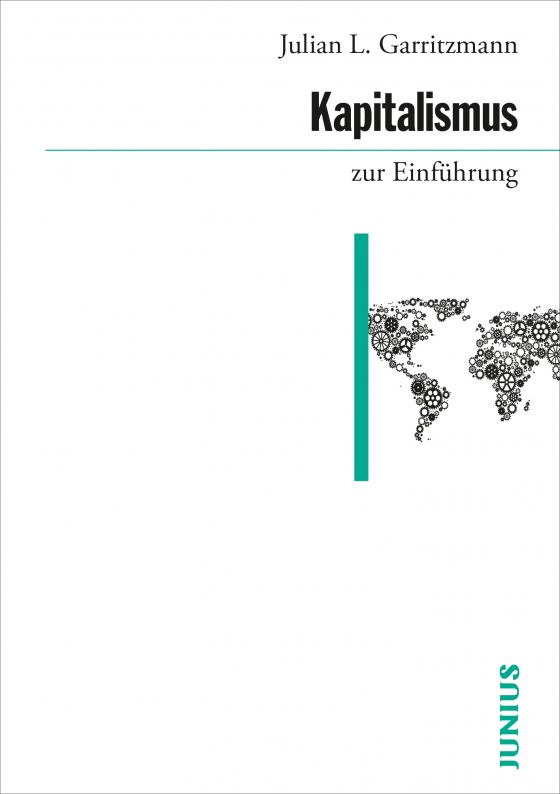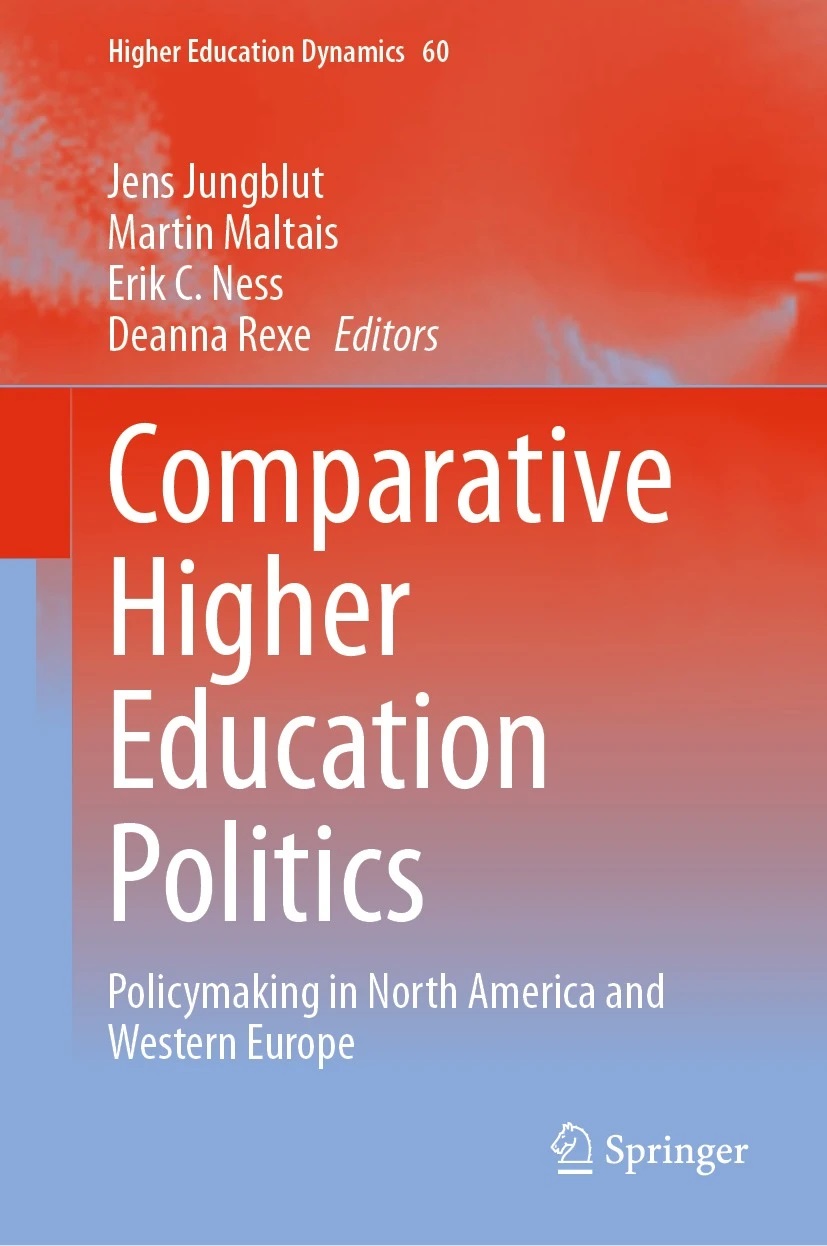Publikationen
Eine Übersicht meiner Publikationen und Zitationsmetriken finden Sie unter google scholar.
Monographien
[5] Garritzmann, Julian L. (2023). Kapitalismus: Zur Einführung. Hamburg: Junius
[4] Garritzmann, Julian L., Silja Häusermann & Bruno Palier (Hg.) (2022). The World Politics of Social Investment (Volume I): Welfare States in the Knowledge Economy. Oxford: Oxford University Press.
- Open Access Version einiger Kapitel von Volume I hier und von Volume II hier.
[3] Garritzmann, Julian L., Silja Häusermann & Bruno Palier (Hg.) (2022). The World Politics of Social Investment (Volume II): The Politics of Varying Social Investment Strategies. Oxford: Oxford University Press.
- Open Access Version einiger Kapitel von Volume I hier und von Volume II hier.
[2] Busemeyer, Marius R., Julian L. Garritzmann & Erik Neimanns (2020). A Loud but Noisy Signal? Public Opinion and Education Reform in Western Europe. Cambridge: Cambridge University Press.
- Beitrag im LSE the Social Policy Blog: "Why does public opinion (only) sometimes affect policy-making? The example of education policy"
- Beitrag im ECPR The Loop Blog: "Under what conditions can public opinion affect policy-making? Education as a case study"
- Kurzbeitrag zum Buch erschienen in Forschung und Lehre: "Wann die Bevölkerung die Bildungspolitik bestimmt"
- Beitrag im Blog "Education amidst Covid-19" anhand von Bucheinblicken erschienen Cambridge University Blog FiteenEightyFour
- Beitrag im DVPW Blog: "Warum beeinflusst öffentliche Meinung (nur) manchmal Politik? Eine Analyse am Beispiel der Bildungspolitik"
- Beitrag im DeFacto Blog: "Warum beeinflusst öffentliche Meinung (nur) manchmal Politik? Eine Analyse am Beispiel der Bildungspolitik"
[1] Garritzmann, Julian L. (2016). The Political Economy of Higher Education Finance. The Politics of Tuition Fees and Subsidies in OECD Countries, 1945-2015. Basingstoke: Palgrave Macmillan.
- Prämiert mit dem Nachwuchspreis der Deutschen Vereinigung für Politikwissenschaft (DVPW) 2017
- Kapitel 6 prämiert mit dem European Social Policy Analysis Network's (ESPAnet) und dem Journal of European Social Policy's (JESP) Doctoral Researcher Prize
- Finalist für den Deutscher Studienpreis 2016
Herausgeberschaften
Busemeyer, Marius R., Caroline de la Porte, Julian L. Garritzmann & Emmanuele Pavolini (Hg.) (2018). The Future of the Social Investment State: Policies, Outcomes, and Politics. Special Issue. Journal of European Public Policy 25(6).- Auch veröffentlich als: Busemeyer, Marius R., Caroline de la Porte, Julian L. Garritzmann, and Emmanuele Pavolini (Eds.) (2018). The Future of the Social Investment State. Abingdon: Routledge. ISBN: 9781138318175
Begutachtete Zeitschriftenbeiträge
[21] Garritzmann, Julian L. & Katrijn Siderius. (2024). Introducing 'ministerial politics': Analyzing the role and crucial redistributive impact of individual ministries in policy‐making. Governance: 1–22. https://doi.org/10.1111/gove.12859
[20] Garritzmann, Julian L. & Kilian Seng. (2023). The Politics of (De)Liberalization: Studying Partisan Effects Using Mixed-Effects Models. Political Science Research and Methods: 1-17. doi:10.1017/psrm.2023.35
[19] Garritzmann, Julian L., Silja Häusermann & Bruno Palier (2023). Social Investments in the Knowledge Economy: The Politics of Inclusive, Stratified, and Targeted Reforms Across the Globe. Social Policy & Administration 57(1): 87-101.
[18] Garritzmann, Julian L., Erik Neimanns & Marius Busemeyer (2023). Public Opinion towards Welfare State Reform: The Role of Political Trust and Government Satisfaction. European Journal of Political Research 62(1): 197-220.
[17] Garritzmann, Julian L., Leonce Röth & Hanna Kleider (2021). Policy-making in Multilevel Systems: Ideology, Authority, and Education. Comparative Political Studies 54(12): 2155-2190. DOI: 10.1177/0010414021997499. Preprint erhältlich bei ResearchGate. Replication data: https://doi.org/10.7910/DVN/ETFEMX.
- Beitrag "Social Investment Policies that Women Want" erschienen auf dem JESP European Social Policy Blog: https://jesp.eu/2021/05/14/social-investment-policies-that-women-want/
[15] Garritzmann, Julian L. & Kilian Seng (2020). Party Effects on Total and Disaggregated Welfare Spending – A Mixed-Effects Approach. European Journal of Political Research. https://doi.org/10.1111/1475-6765.12371
[14] Busemeyer, Marius R. & Julian L. Garritzmann (2018). Compensation or Social Investment? Revisiting the Link between Globalization and Popular Demand for the Welfare State. Journal of Social Policy 48(3): 427-448.
[13] Neimanns, Erik, Marius R. Busemeyer & Julian L. Garritzmann (2018). How Popular Are Social Investment Policies Really? Evidence from a Survey Experiment in Eight Western European Countries. European Sociological Review 34(3): 238-253.
[12] Busemeyer, Marius R., Caroline de la Porte, Julian L. Garritzmann & Emmanuele Pavolini (2018). The Future of the Social Investment State: Politics, Policies, and Outcomes. (Special Issue Introduction). Journal of European Public Policy 25(6): 801-809.
[11] Garritzmann, Julian L., Marius R. Busemeyer & Erik Neimanns (2018). Public Demand for Social Investment: New Supporting Coalitions for Welfare State Reform in Western Europe? Journal of European Public Policy 25(6): 844-861.
[10] Busemeyer, Marius R., Julian L. Garritzmann, Erik Neimanns & Roula Nezi (2018). Investing in Education in Europe: Evidence from a New Survey of Public Opinion. Journal of European Social Policy 28(1): 34-54.
[9] Kleider, Hanna, Leonce Röth & Julian L. Garritzmann (2017). Ideological Alignment and the Distribution of Public Expenditures. West European Politics 41(3): 779-802.
- Auch erschienen in: Däubler, Thomas, Jochen Müller & Christian Stecker (2019). Democratic Representation in Multilevel Systems: The Vices and Virtues of Regionalisation. London & New York: Routledge.
[8] Busemeyer, Marius R. & Julian L. Garritzmann (2017). Academic, Vocational, or General? An Analysis of Public Opinion towards Education Policies with Evidence from a New Comparative Survey. Journal of European Social Policy 27(4): 373-386. [Un-gated access]
[7] Busemeyer, Marius R. & Julian L. Garritzmann (2017). Public Opinion on Policy and Budgetary Trade-offs in European in European Welfare States: Evidence from a New Comparative Survey. Journal of European Public Policy 24(6): 871-889.
- Auch erschienen in: Breunig, Christian, Christine S. Lipsmeyer & Guy D. Whitten (2017). Political Budgeting across Europe. Abingdon: Routledge.
[6] Garritzmann, Julian L. (2017). How Much Power Do Oppositions Have? Comparing the Opportunity Structures of Parliamentary Oppositions in 21 Democracies. Journal of Legislative Studies 23(1): 1-30.
- Prämiert mit dem Best Paper Prize der Swiss Political Science Association (SVPW/ASSP) - Nachwuchspreis der SVPW 2018
- DeFacto hat einen blog post über das Papier publiziert
[5] Garritzmann, Julian L. (2017). The Partisan Politics of Higher Education. PS: Political Science and Politics 50(2): 413-417.
[4] Busemeyer, Marius R. & Julian L. Garritzmann (2017). The Effect of Economic Globalization on Compensatory and Social Investment Policies Compared: A Multi-level Analysis of OECD Countries. Danish Center for Welfare Studies (DaWS) Working Paper Series 2: 1-29.
[3] Garritzmann, Julian L. & Kilian Seng (2016). Party Politics and Education Spending: Challenging Some Common Wisdom. Journal of European Public Policy, 23(4): 510-530.
[2] Garritzmann, Julian L. (2015). Attitudes towards Student Support – How Positive Feedback-effects Prevent Change in the Four Worlds of Student Finance. Journal of European Social Policy. 25(2): 139-158.
- Prämiert mit dem European Social Policy Analysis Network's (ESPAnet) und dem Journal of European Social Policy's (JESP) Doctoral Researcher Prize
Buchkapitel
[17] Garritzmann, Julian L. & Bruno Palier (2023). Welfare States, Growth Regimes, and the Emergence of the Knowledge Economy: Social Policy in Turbulent Times. In: Bent Greve (Hg.): Welfare States in a Turbulent Era. S. 127-141. Cheltenham: Edward Elgar.
[16] Garritzmann, Julian L. (2023). Politics of Higher Education Funding in (Western) Europe – and Beyond. In: Jens Jungblut, Martin Maltais, Erik Ness & Deanna Rexe (Hg.). Comparative Higher Education Politics – Policymaking in North America and Europe. S. 121-141. Cham, Schweiz: Springer.
[15] Garritzmann, Julian L. & Susanne Garritzmann (2023). Why Globalization Hardly Affects Education Systems. In: Paola Mattei, Xavier Dumay, Eric Mangez, & Jacqueline Behrend (Hg.). Oxford Handbook of Globalization and Education. S. 554-575. Oxford: Oxford University Press. [Un-gated access]
[14] Busemeyer, Marius R., Julian L. Garritzmann & Susanne Garritzmann (2022). Bildungspolitik. In: Georg Wenzelburger & Reimut Zohlnhöfer (Hg.). Handbuch Policy-Forschung. Wiesbaden: Springer VS. https://doi.org/10.1007/978-3-658-05678-0_26-1
[13] Palier, Bruno, Julian L. Garritzmann & Silja Häusermann (2022). Towards a Worldwide View on the Politics of Social Investment. In: Julian L. Garritzmann, Silja Häusermann & Bruno Palier (Hg.). The World Politics of Social Investment (Volume I): Welfare States in the Knowledge Economy. S. 1-58. Oxford: Oxford University Press.
[12] Häusermann, Silja, Julian L. Garritzmann & Bruno Palier (2022). The Politics of Social Investment: A Global Theoretical Framework. In: Julian L. Garritzmann, Silja Häusermann & Bruno Palier (Hg.). The World Politics of Social Investment (Volume I): Welfare States in the Knowledge Economy. S. 59-105. Oxford: Oxford University Press.
[11] Garritzmann, Julian L., Silja Häusermann, Thomas Kurer, Bruno Palier & Michael Pinggera (2022). The Emergence of Knowledge Economies: Educational Expansion, Labor Market Changes, and the Politics of Social Investment. In: Julian L. Garritzmann, Silja Häusermann & Bruno Palier (Hg.). The World Politics of Social Investment (Volume I): Welfare States in the Knowledge Economy. S. 251-284. Oxford: Oxford University Press.
[10] Garritzmann, Julian L., Silja Häusermann & Bruno Palier (2022). The Politics of Social Investment in the Knowledge Economy: Analytical Insights from a Global Comparison. In: Julian L. Garritzmann, Silja Häusermann & Bruno Palier (Hg.). The World Politics of Social Investment (Volume I): Welfare States in the Knowledge Economy. S. 454-489. Oxford: Oxford University Press.
[9] Häusermann, Silja, Julian L. Garritzmann & Bruno Palier (2022). Structural Constraints, Institutional Legacies, and the Politics of Social Investment Across World Regions. In: Julian L. Garritzmann, Silja Häusermann & Bruno Palier (Hg.). The World Politics of Social Investment (Volume II): The Politics of Varying Social Investment Strategies. S. 1-34. Oxford: Oxford University Press.
[8] Busemeyer, Marius R. & Julian L. Garritzmann (2022). Loud, Noisy, or Quiet Politics? The Role of Public Opinion, Parties, and Interest Groups in Social Investment Reforms in Western Europe. In: Julian L. Garritzmann, Silja Häusermann & Bruno Palier (Hg.). The World Politics of Social Investment (Volume II): The Politics of Varying Social Investment Strategies. S. 59-85. Oxford: Oxford University Press.
[7] Palier, Bruno, Julian L. Garritzmann, Silja Häusermann & Francesco Fioritto (2022). Conclusion: How Democracies Transform their Welfare States: The Reform Trajectories and Political Coalitions of Inclusive, Stratified, and Targeted Social Investment Strategies Around the World. In: Julian L. Garritzmann, Silja Häusermann & Bruno Palier (Hg.). The World Politics of Social Investment (Volume II): The Politics of Varying Social Investment Strategies. S. 402-475. Oxford: Oxford University Press.
[6] Garritzmann, Julian L., Silja Häusermann & Bruno Palier (2022). Social Investment. In: Daniel Béland, Stephan Leibfried, Kimberly J. Morgan, Herbert Obiger & Christopher Pierson (Hg.). Oxford Handbook on the Welfare State, 2. Auflage. S. 188-205. Oxford: Oxford University Press.
[5] Garritzmann, Susanne & Julian L. Garritzmann (2021). Die Bildungspolitik der Grün-Schwarzen Regierung in Baden-Württemberg 2016-2021. In: Felix Hörisch & Stefan Wurster (Hg.). Kiwi im Südwesten – Eine Bilanz der zweiten Landesregierung Kretschmann, 2016-2021. S. 203-233. Wiesbaden: Springer VS.[4] Busemeyer, Marius R. & Julian L. Garritzmann (2021). Public Opinion on Education Policies: A Multi-country Perspective. In: Martin R. West & Ludger Woessmann (Hg.). Public Opinion and the Political Economy of Education Policy around the World. S. 17-54. Cambridge: MIT Press.
[3] Garritzmann, Julian L. (2020). Education Policy. In: Nicholas Ellison & Tina Haux (Hg.). Society and Social Policy. S. 344-355. Cheltenham: Edward Elgar Publishing.
[2] Busemeyer, Marius R. & Julian L. Garritzmann (2019). Bildungspolitik und der Sozialinvestitionstaat. In: Herbert Obinger & Manfred G. Schmidt (Hg.) Handbuch der Sozialpolitik. S. 783-805. Wiesbaden: Springer VS. https://link.springer.com/chapter/10.1007/978-3-658-22803-3_38
[1] Garritzmann, Julian L. (2016) Garritzmann, Julian L. & Bruno Palier (2023, i. E.). Welfare States, Growth Regimes, and the Emergence of the Knowledge
Economy: Social Policy in Turbulent Times. In: Bent Greve (ed.): Welfare
States in a Turbulent Era (S. 127-141). Cheltenham: Edward Elgar.Oppositional Power. In: Ali Farazmand (Hg.) Global Encyclopedia of Public Administration, Public Policy, and Governance. S. 4248-4255. Springer Cham. Online First. http://dx.doi.org/10.1007/978-3-319-31816-5_2534-1
Datensätze
Wir haben eine große öffentliche Meinungsumfrage zu Bildungs- und Sozialpolitik in acht europäischen Ländern durchgeführt: Die INVEDUC Studie. Die Umfrage wurde von einem professionellen Umfrageinstitut (TNS) als computer-geschützte Telefonbefragung (CATI) durchgeführt. Die Datenqualität ist ähnlich wie die das European Social Survey (ESS). Die INVEDUC Daten sind frei und kostenlos verfügbar bei GESIS.
Andere Publikationen
[15] Garritzmann, Julian L. (2022). "Four Facts I Learned About Public Opinion on Education Policy". Newsletter of the APSA Education Policy and Policy Section, 4. Ausgabe.
[14] Schwander, Hanna & Julian L. Garritzmann (2021). "Social Investment Policies that Women Want". JESP European Social Policy Blog: https://jesp.eu/2021/05/14/social-investment-policies-that-women-want/
[13] Garritzmann, Julian L. (2021). "Under what conditions can public opinion affect policy-making? Education as a case study". The Loop (ECPR's Blog). https://theloop.ecpr.eu/why-does-public-opinion-sometimes-but-not-always-affect-policy-making-the-example-of-education-policy/
[12] Garritzmann, Julian L. (2021). "Warum beeinflusst öffentliche Meinung (nur) manchmal Politik? Eine Analyse am Beispiel der Bildungspolitik". DVPW Blog.
[11] Garritzmann, Julian L. (2021). "Warum beeinflusst öffentliche Meinung (nur) manchmal Politik? Eine Analyse am Beispiel der Bildungspolitik". DeFacto Blog.
[10] Garritzmann, Julian L. (2019). Wie viel Macht haben Oppositionen? DVPW Blog. https://www.dvpw.de/blog/blog-beitraege/2019/wie-viel-macht-haben-oppositionen-ein-beitrag-von-julian-l-garritzmann/
[9] Garritzmann, Julian L. (2019). Die Macht der Opposition in der Politik. DeFacto Blog. https://www.defacto.expert/2019/05/07/macht-der-opposition/
[8] Garritzmann, Julian L. (i. E.). Review of Torben Iversen's and David Soskice's "Democracy and Prosperity: Reinventing Capitalism through a Turbulent Century" (Princeton University Press) (in German). Politische Vierteljahresschrift 60(3): 655-657.. https://doi.org/10.1007/s11615-019-00178-6
[7] Garritzmann, Julian L. (2019). Globalization and the Welfare State: Is More Education What People Really Want? The Social Policy Blog. https://socialpolicyblog.com/2019/02/11/globalisation-and-the-welfare-state-is-more-education-what-people-really-want/
[6] Garritzmann, Julian L. (2018). Review of Anton Hemerijck's "The Uses of Social Investment" (Oxford University Press) (in German). Politische Vierteljahresschrift. DOI: 10.1007/s11615-018-0136-2
[5] Garritzmann, Julian L. (2017). Europeans want more vocational (not higher) Education... WONKHE. Higher Education: Policy, People and Politics. (circulation: 25,000). http://wonkhe.com/blogs/europeans-want-more-vocational-not-higher-education/
[4] Garritzmann, Julian L., Silja Häusermann, Bruno Palier & Christine Zollinger (2017). WOPSI: The World Politics of Social Investment. LIEPP Working Paper, no 64. Link.
[3] Garritzmann, Julian L., Silja Häusermann, Bruno Palier & Christine Zollinger (2016). WOPSI - The World Politics of Social Investment (May 2016). Available at SSRN: https://ssrn.com/abstract=2795451
[2] Garritzmann, Julian L. (2016). The Politics of Higher Education Tuition Fees and Subsidies. Europe of Knowledge. http://era.ideasoneurope.eu/2016/10/12/politics-higher-education-tuition-fees-subsidies/
- Auch publiziert auf dem Blog des Max Weber Programs des EUI: https://blogs.eui.eu/maxweberprogramme/the-politics-of-higher-education-tuition-fees-and-subsidies/
[1] Garritzmann, Julian L. (2014). Review of Carsten Jensen's "The Right and the Welfare State" (Oxford University Press). CritCom. A Forum for Research and Commentary on Europe. http://councilforeuropeanstudies.org/critcom/the-right-and-the-welfare-state/
Neueste Publikationen
'ministerial politics': Analyzing the role and crucial redistributive impact of individual ministries in policy‐making. Governance.
Garritzmann, Julian L. & Kilian Seng (2023). The politics of (de)liberalization: Studying partisan effects using mixed-effects models. Political Science Research and Methods.
Kontakt
Prof. Dr. Julian Garritzmann
Goethe-Universität Frankfurt am Main
Fachbereich 03 Gesellschaftswissenschaften
Institut für Politikwissenschaft
Campus Westend - PEG-Gebäude
Hauspostfach PEG 54
Theodor-W.-Adorno-Platz 6
60323 Frankfurt am Main
Raum: PEG 3.G 047
Tel.: +49 (0)69 798-36639
garritzmann@soz.uni-frankfurt.de
Sekretariat
Andrea Stork
Raum: PEG 3.G 103
Tel.: +49 (0)69 798-36658
a.stork@soz.uni-frankfurt.de
- Aktuelles und Presse
- Pressemitteilungen
- Öffentliche Veranstaltungen
- Uni-Publikationen
- Aktuelles Jahrbuch
- UniReport
- Forschung Frankfurt
- Aktuelle Stellenangebote
- Frankfurter Kinder-Uni
- Internationales
- Outgoings
- Erasmus / LLP
- Goethe Welcome Centre (GWC)
- Refugees / Geflüchtete
- Erasmus +
- Sprachenzentrum oder Fremdsprachen
- Goethe Research Academy for Early Career Researchers
- Forschung
- Research Support
- Forschungsprojekte, Kooperationen, Infrastruktur
- Profilbereich Molecular & Translational Medicine
- Profilbereich Structure & Dynamics of Life
- Profilbereich Space, Time & Matter
- Profilbereich Sustainability & Biodiversity
- Profilbereich Orders & Transformations
- Profilbereich Universality & Diversity









